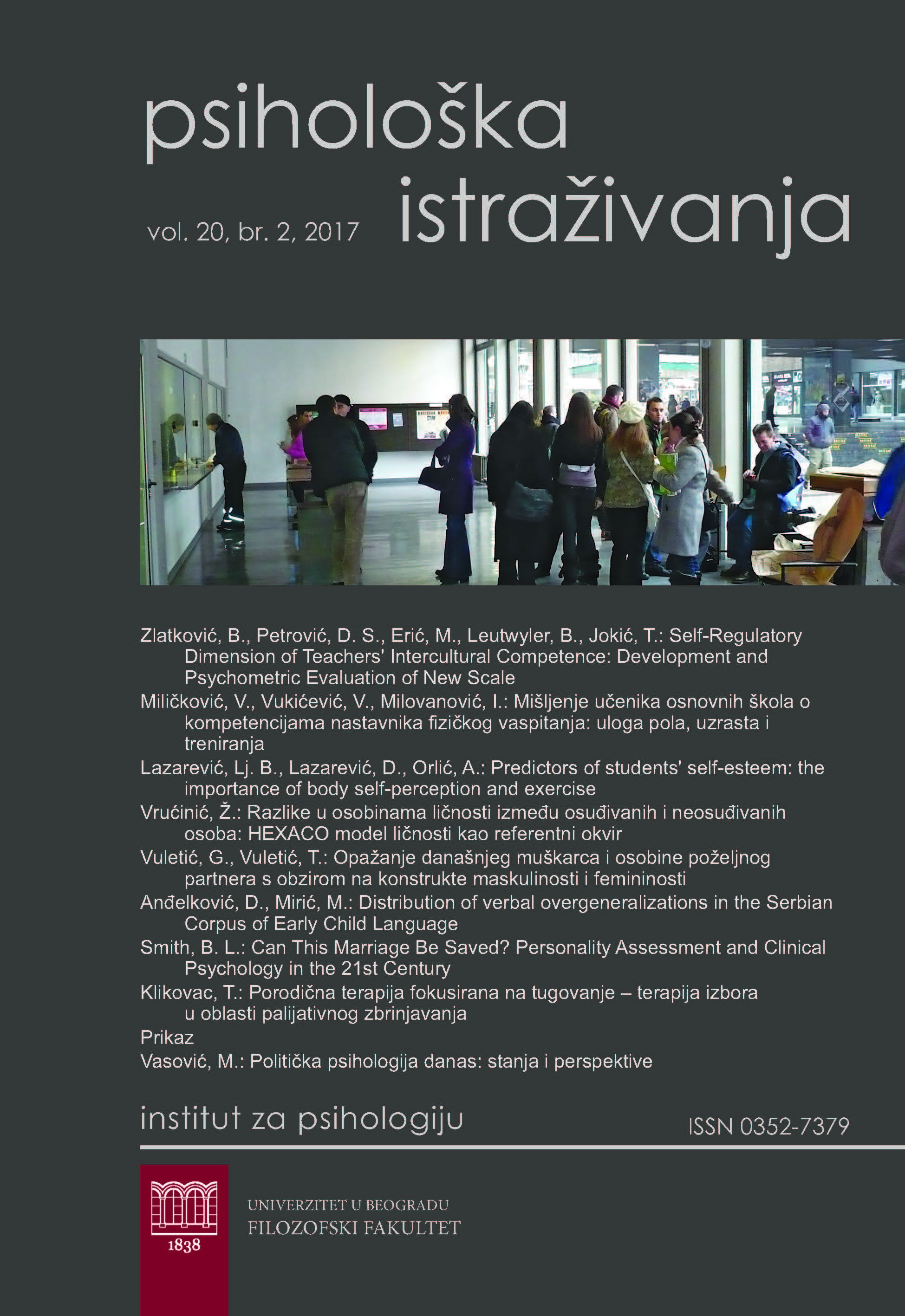Predictors of students' self-esteem: The importance of body self-perception and exercise
Predictors of students' self-esteem: The importance of body self-perception and exercise
Author(s): Ljiljana B. Lazarević, Dušanka Lazarević, Ana OrlićSubject(s): Psychology, Higher Education , Educational Psychology
Published by: Филозофски факултет, Универзитет у Београду
Keywords: self-esteem; physical self-efficacy; social physique anxiety; physical activity; university students
Summary/Abstract: The goal of this study was to explore the predictive validity of physical self-efficacy, social physique anxiety, and physical activity in the self-esteem of students, as well as to investigate potential gender differences. The Rosenberg's Self-Esteem Scale (SES), Physical Self-Efficacy Scale (PSES), Social Physique Anxiety Scale (SPAS), and a short questionnaire about physical activity were administered to a sample of 232 university students. The overall results show that students are moderately physically active (on the average, 2.75 times per week), have moderately high selfesteem and physical self-efficacy and lower social physique anxiety. No gender differences were detected in self-esteem. In other variables, gender differences are significant and mostly in favour of males. The analyses showed that self-esteem correlated positively with physical self-efficacy and physical activity, and negatively with social physique anxiety. The regression analyses indicated that physical selfefficacy, social physique anxiety and female gender were significant predictors of self-esteem. Physical activity was not a significant predictor of self-esteem. Future studies should investigate the relations of body self-perceptions, physical exercise, and domain-specific self-esteem.
Journal: Psihološka istraživanja
- Issue Year: 20/2017
- Issue No: 2
- Page Range: 239-254
- Page Count: 16
- Language: English

